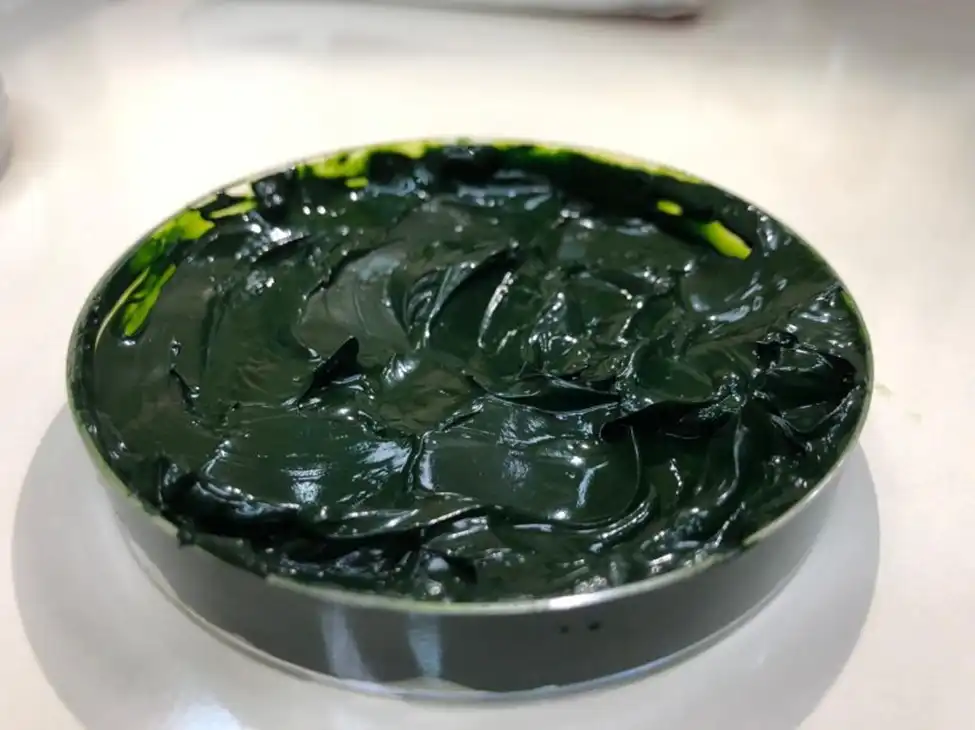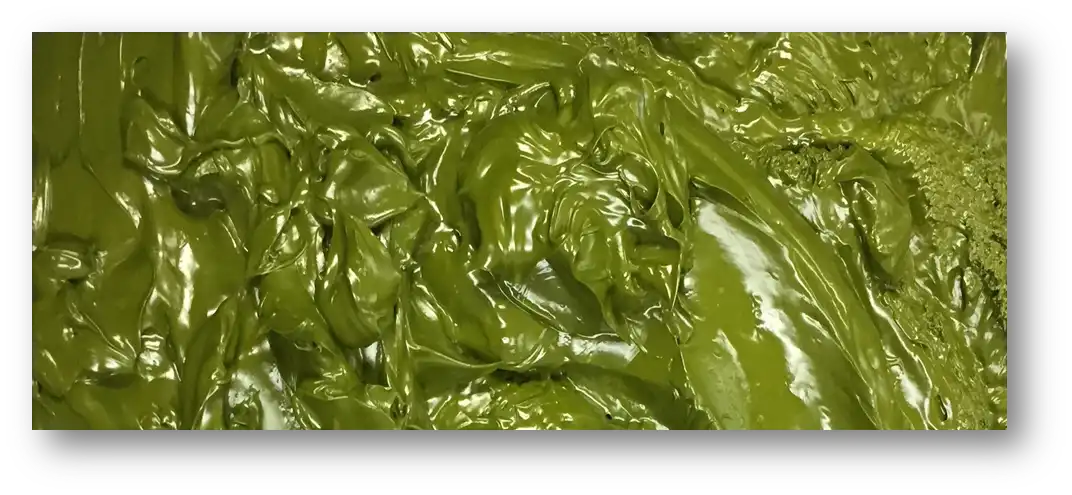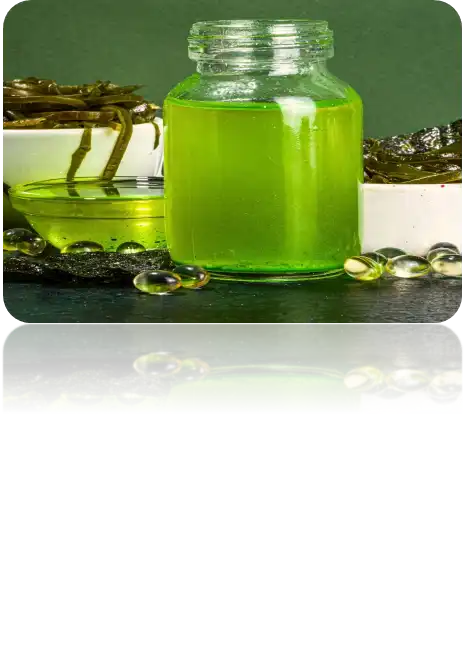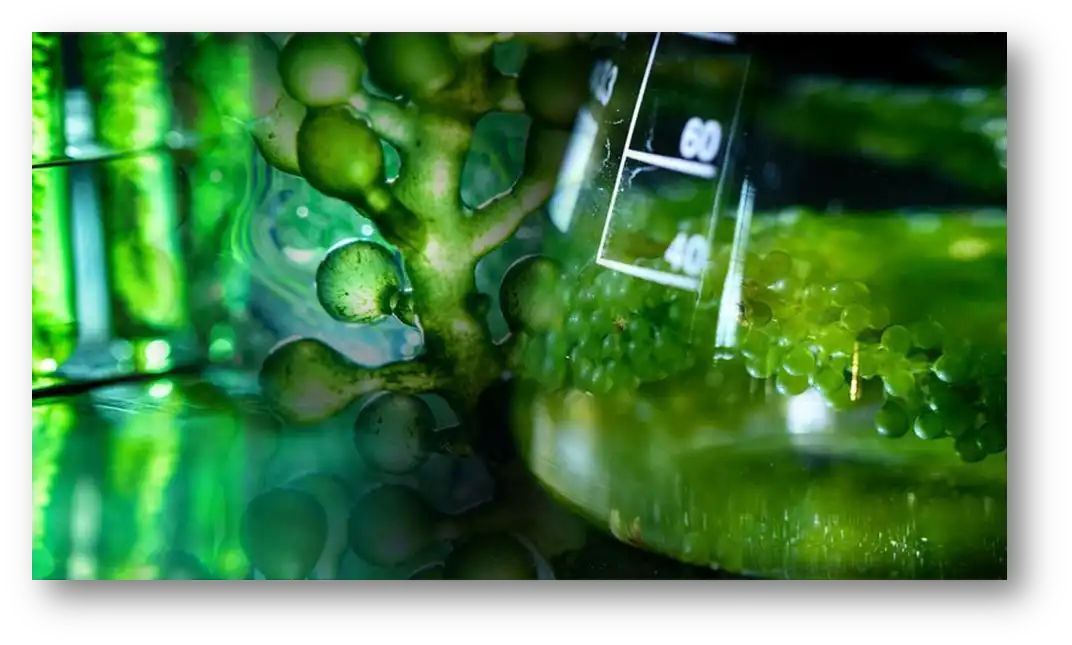Why Algal EPA Essential for Human Health?
Eicosapentaenoic acid (EPA), is particularly noteworthy in the field of nutritional science due to its amazing effects on human health, that comes from algae and it has becoming more and more well-known for its vital function in enhancing general health. In this blog, we examine the importance of algal EPA for human health, highlighting its numerous health advantages and explaining why it's thought to be essential for achieving optimum health.

Understanding Algal EPA
Eicosapentaenoic acid (EPA) is a long-chain omega-3 fatty acid that is essential for human health. EPA is synthesized by certain types of algae through photosynthesis, making algae the primary source of this important nutrient in the marine food chain. Unlike other omega-3 fatty acids, such as alpha-linolenic acid (ALA), which can be converted into EPA in the human body but with limited efficiency, obtaining EPA directly from dietary sources is often considered the most effective way to ensure adequate intake.
Algae are single-celled organisms that exist in various aquatic environments, including freshwater and marine ecosystems. They are capable of synthesizing EPA from precursor molecules using sunlight and carbon dioxide through the process of photosynthesis. This ability to produce EPA makes algae a vital component of marine ecosystems and an essential source of nutrition for marine life, including fish and other aquatic organisms.
In recent years, there has been growing interest in harnessing the potential of algae as a sustainable source of EPA for human consumption. Algal EPA supplements have gained popularity as an alternative to traditional fish oil supplements, offering a vegetarian-friendly option for individuals seeking to increase their EPA intake without relying on animal-derived products.

Advantage of algae EPA
One of the key advantages of obtaining EPA from algae is its sustainability. Unlike fish oil, which is extracted from wild-caught fish or farmed fish fed with fishmeal, algal EPA production does not rely on the depletion of marine resources. Algae can be cultivated in controlled environments, such as photobioreactors or open ponds, using renewable energy sources and minimal water resources, making it a more environmentally friendly option.
Furthermore, algal EPA supplements offer a pure and concentrated source of EPA without the risk of contamination commonly associated with fish oil, such as heavy metals, PCBs, and dioxins. This ensures that individuals can reap the benefits of EPA without exposure to harmful toxins, making it a safer choice for long-term supplementation.
Versatile Application
Algal EPA, derived from microalgae, finds diverse applications across industries. It's commonly used in dietary supplements and functional foods for its health benefits, especially in cardiovascular and cognitive health. In pharmaceuticals, it's utilized for conditions like hypertriglyceridemia. Algal EPA also extends to cosmetics, animal feed, and even biotechnology for biofuel production. Its environmental applications include wastewater treatment and environmental remediation.
Nutritional Supplements: Algal EPA is commonly used in dietary supplements, such as fish oil alternatives and vegan omega-3 supplements, to provide essential fatty acids for overall health and well-being.
Functional Foods: It is incorporated into various functional food products, including fortified beverages, energy bars, and breakfast cereals, to enhance their nutritional profile and offer health benefits related to cardiovascular health, brain function, and inflammation reduction.


Infant Formula: Algal EPA is added to infant formula to mimic the fatty acid composition of breast milk and support healthy development, especially in cognitive and visual function during infancy and early childhood.
Pharmaceuticals: It is used in pharmaceutical products for the treatment of certain medical conditions, such as hypertriglyceridemia, cardiovascular disease, and inflammatory disorders, either as a standalone supplement or as part of combination therapies.
Cosmetics and Skincare: Algal EPA is incorporated into cosmetic and skincare products for its moisturizing, anti-inflammatory, and antioxidant properties, helping to nourish and protect the skin against aging, dryness, and environmental damage.
Animal Feed: It is included in aquafeed formulations for farmed fish and shellfish to improve growth performance, feed conversion efficiency, and overall health, while also enhancing the nutritional quality of seafood products for human consumption.
Biotechnology and Biofuels: Algal EPA can be utilized in biotechnological applications, such as biofuel production and wastewater treatment, leveraging the metabolic capabilities of algae to produce renewable energy sources and mitigate environmental pollution.
Veterinary Medicine: It is used in veterinary medicine for companion animals, livestock, and aquaculture species to promote overall health, prevent certain diseases, and support specific physiological functions, such as joint health and reproductive performance.
Environmental Remediation: Algal EPA can be employed in environmental remediation efforts, such as phytoremediation and bioremediation, to mitigate pollution and restore ecosystems by absorbing contaminants, improving water quality, and restoring habitat integrations.


Health Benefits of Algal EPA:
Heart Health:
Perhaps one of the most well-known benefits of EPA is its positive impact on heart health. Research suggests that EPA helps reduce triglyceride levels, lower blood pressure, and prevent the formation of blood clots, thereby reducing the risk of heart disease and stroke.
Brain Function:
EPA plays a crucial role in brain development and cognitive function. It's been linked to improved mood, memory, and focus, making it essential for mental well-being throughout all stages of life.
Inflammation Management:
Chronic inflammation is associated with various health conditions, including arthritis, autoimmune diseases, and cardiovascular disorders. EPA possesses potent anti-inflammatory properties, helping to mitigate inflammation and alleviate symptoms associated with inflammatory conditions.
Eye Health:
Algal EPA is also beneficial for maintaining healthy vision. EPA supports the structure and function of the retina, reduces the risk of age-related macular degeneration, and may help prevent other eye conditions such as dry eyes and glaucoma.
Why Algal EPA is Essential?
Sustainability: Algal EPA production offers a sustainable alternative to traditional sources like fish oil. By obtaining EPA from algae, we reduce the pressure on marine ecosystems and help preserve fragile marine biodiversity.
Purity: Algal EPA supplements are free from contaminants commonly found in fish oil, such as heavy metals and pollutants. This ensures a clean and pure source of EPA without the risk of harmful toxins.
Vegetarian and Vegan-Friendly: For individuals following a vegetarian or vegan diet, algal EPA provides a valuable source of omega-3 fatty acids without the need for animal-derived products.
Accessibility: Algal EPA supplements are widely available and accessible, making it easier for people to incorporate this essential nutrient into their daily regimen.
Algal EPA and Sustainability
The sustainable production of algal EPA offers a promising alternative to traditional fish oil sources, addressing environmental concerns while meeting the growing demand for omega-3 fatty acids in various industries, including dietary supplements, food, and pharmaceuticals.
Algal EPA, made from tiny algae, is a sustainable option compared to getting EPA from fish.
Here's why:
Protects Ocean Life: Since it doesn't rely on fishing, it helps keep fish populations healthy and oceans thriving.
Less Harm to Environment: Growing algae in controlled environments causes less pollution and uses fewer resources than traditional fishing methods.
Fewer Greenhouse Gases: Algae can even help soak up carbon dioxide, making the process more eco-friendly.
Available Everywhere: Unlike fishing, algae can be grown almost anywhere, reducing the need for long trips to get EPA.
Follows Rules: Making EPA from algae fits with rules aimed at keeping oceans safe and promoting responsible food production.

Where to Buy EPA (eicosapentaenoic acid)?
At yanggebiotech.com, we understand the importance of choosing the right EPA (eicosapentaenoic acid) for your Business needs. Contact us at info@yanggebiotech.com to discuss your specific needs and explore our range of high-quality EPA (eicosapentaenoic acid).
Conclusion
In conclusion, algal EPA plays a vital role in supporting human health and well-being. From cardiovascular health to brain function, inflammation management, and eye health, the benefits of EPA are far-reaching and profound. It is crucial to understand the role of algal EPA in human health involves recognizing its origins in algae, its importance as a sustainable source of omega-3 fatty acids, and its potential to provide health benefits without the environmental and safety concerns associated with traditional fish oil supplements. As research continues to uncover the many potential applications of algal EPA, it is likely to play an increasingly significant role in promoting human health and well-being in the future. In short, algal EPA is a smart, eco-friendly choice that helps us stay healthy while taking care of our planet.
Don’t miss out on the opportunity to harness the power of EPA (eicosapentaenoic acid). In STOCK and take your products to the next level. A sustainable solution that works. Please contact us by email: info@yanggebiotech.com
Send Inquiry
Related Industry Knowledge
- Why Pea Protein Peptide is the Ideal Choice for Your Health and Fitness Goals
- Mung Bean Protein Peptide: A Natural Powerhouse of Health Benefits
- Phycocyanin E18: The Superfood You Need to Try
- Health Benefits of Seamoss Gummies
- Organic Moringa Powder Nutrition and Health Benefits
- Gardenia Yellow Powder E60 Uses in Food, Beverage & Nutrition
- Lycopene benefits for skin
- Can I use almond flavor powder daily on my face?
- What is oat beta-glucan used for?
- What Are Exosomes Used for In Skincare


